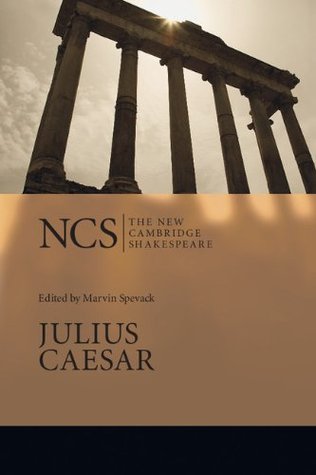More on this book
Community
Kindle Notes & Highlights
Read between
April 23 - June 23, 2022
Although the play appeared in print for the first time in the First Folio (1623)
‘Julius Caesar has a smaller vocabulary than any other play of Shakespeare except Two Gentlemen and Comedy of Errors, which is seven hundred lines shorter.
They are characteristically sleepless, a state which portrays less their agitation or weakness or self-doubt than their isolation.
the tragedy of Brutus,
cutting 3.3, the scene in which Cinna the Poet meets his death
Brutus invites only one of his followers, whose name varies in different texts, to kill him,73 and when he is refused Brutus proceeds to commit suicide without external help after delivering a death-speech appropriate for a patriot and tragic hero.
convinced Tree that Antony was the leading role.
in order to substantiate Antony’s claim to stardom.
The portrayal of Caesar as a man whose former strength and power are clearly declining but who preserves his dignity and is still a force to be reckoned with was an innovation later productions took notice of.
Orson Welles staged a highly personal vision of the play, subtitled ‘Death of a Dictator’,
John Gielgud clearly made Cassius the driving force;
Caesar he cast John Gielgud,
who examines Antony’s rhetorical triumph over Brutus.
whereas the language of Antony is manipulative.
Peter Thomson55 points out that Brutus is not well-versed in the ‘art’ of decision-making: nearly all his decisions turn out to be wrong;
in his destructive manipulation of the plebeians Antony is similar to Iago (p.
The crowds
the people of Rome,
A traditional presentation of the people as ‘fickle’ and easily swayed
This action, accompanied by a ‘stony collective silence,’106 indicated the absolute failure of Antony’s rhetoric.
What all these experiments have in common is an emphasis on the unpredictability of mass response
the incalculable quality
by placing actors among the spectators in the auditorium.
Joseph L. Mankiewicz’s film of 1953 (produced by MGM) starring Marlon Brando as Antony, John Gielgud as Cassius, James Mason as Brutus, and Louis Calhern as Julius Caesar
(Charlton Heston as Antony; Jason Robards as Brutus; John Gielgud as Julius Caesar).
the force of ‘Antony’s dangerous rhetoric’169 in the forum scene;
The copy-text for this edition is the First Folio of 1623 (F), the sole authority.
And yesterday the *bird of night did sit Even at noon-day
Now could I, Casca, name to thee a man Most like this dreadful night,
’Tis Caesar that you mean, is it not, Cassius?
not that I loved Caesar less, but that I loved Rome more.
There is a tide in the affairs of men Which, taken at the flood, leads on to fortune;
The overwhelming consensus of opinion is that the Folio text of Julius Caesar, the only one with authority, is the ‘best-printed play’1 in the whole Folio.
that the dramatist intended it to be unmistakable witness to the unselfishness, fortitude, and able generalship characteristic of Brutus in other parts of the play’.


